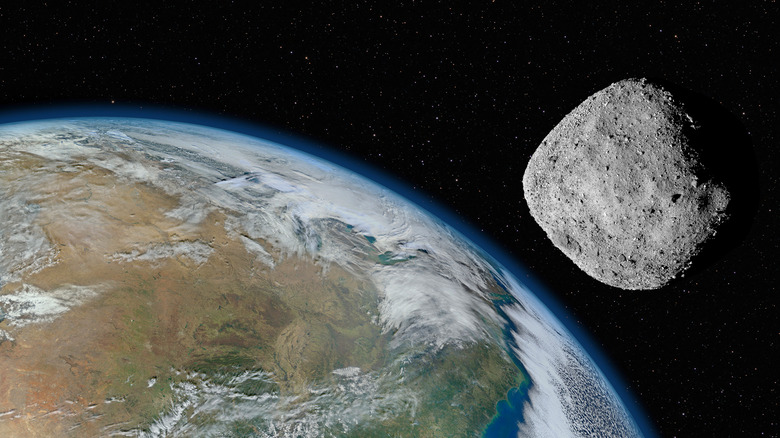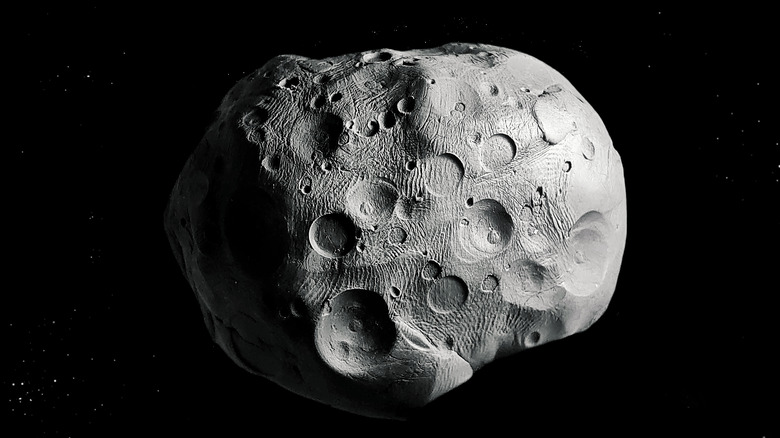Is The Bennu Asteroid Really Going To Hit Earth?
Bennu, a "rubble pile" asteroid, was discovered in 1999. Since then, scientists have been studying the asteroid and have even launched a space explorer, OSIRIS-REx, to bring back samples, per NASA. The explorer reached Bennu in 2018 and is scheduled to drop its haul in September 2023. Based on the information gathered, Bennu was formed at least 4.5 billion years ago and is comprised mostly of rocky debris. Its size is comparable to the height of the Empire State Building, but it isn't made of solid mass — up to 40% of Bennu is reportedly just empty space, as the asteroid is full of holes.
The measurements gathered by experts helped them calculate Bennu's trajectory and determine whether it has a chance of colliding with Earth. Many factors were taken into account to calculate where the asteroid is headed — gravitational pull, the drag of interplanetary dust, and the amount of sunlight that hits Bennu and can potentially change its orbit (via NPR). According to studies, Bennu will be making a close approach to Earth in 2135, but scientists say that the asteroid will be no threat at that time. However, the Earth's gravitational pull will have an impact on Bennu's trajectory as it nears the planet.
What is the probability of Bennu hitting Earth?
Per scientists' findings, Bennu has a 1 in 2,700 (0.037%) chance of hitting Earth on September 24, 2182. According to NPR, OSIRIS-REx stayed in Bennu for a couple of years before heading back to Earth, which gave experts plenty of time to study the asteroid. With the calculations in hand, the NASA team concluded that Bennu is about 52 million to 201 million miles away from Earth, per National Geographic. Despite the possibility of a collision with Earth, experts say there is a 99.9% chance that this won't happen within the next three centuries.
Despite the low chance of Bennu colliding with Earth, scientists at NASA are still closely monitoring and studying the asteroid. Notably, its close approach to Earth in 2135 will provide more information about its future trajectory, as will the samples brought back by OSIRIS-REx. Furthermore, new technology may be available in the future that could provide more precise conclusions on Bennu's path. In the meantime, Davide Farnocchia of NASA says the Bennu asteroid is no cause for concern: "There is no particular reason for concern. We have time to keep tracking the asteroid and eventually come to a final answer."

